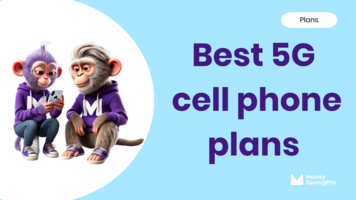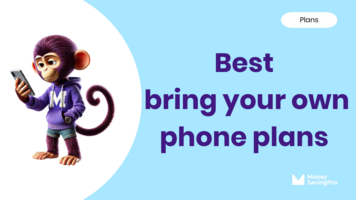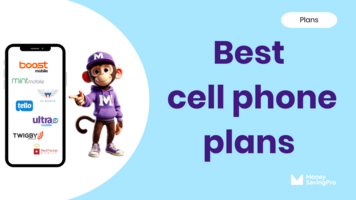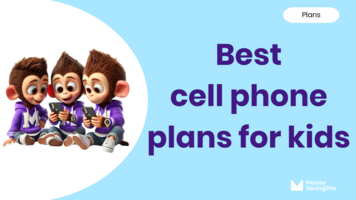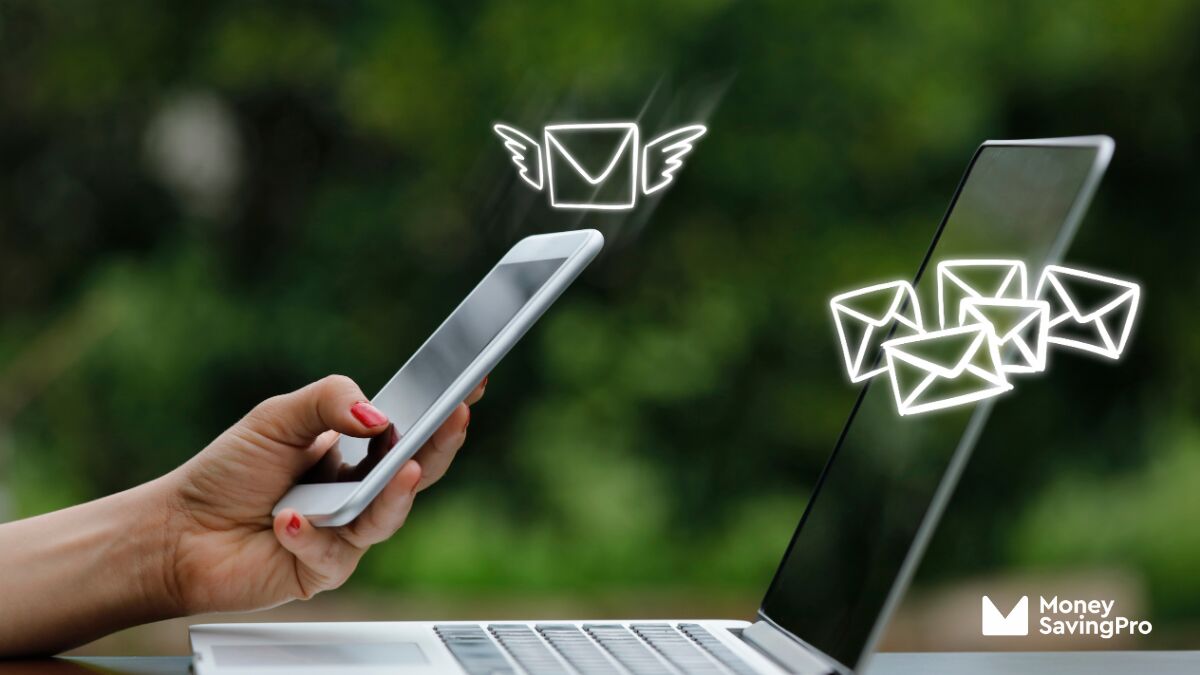
You may have heard of the term "gigabyte" (GB) before, but if you're not sure what it is, you're not alone.
When it comes to buying electronics, knowing what a gigabyte is and how it operates can be helpful in supporting you to make smart decisions. Not only about which plans and devices are best suited for your needs but also about how to save some cash.
Keep reading below to find out what gigabytes are, how they're used, and most importantly, how you can make the most of your money.
How much is a gigabyte?
A gigabyte is the same as 1,024 megabytes, so one gigabyte offers you more.
When choosing a new smartphone or cell phone plan, the data amount and storage are normally measured in GB. But there are some basic plans that still offer a low MB data allowance. These are good for very light internet users who mostly want a phone for calls and texts. But not for a heavy data user.
Gigabytes are typically used to measure larger amounts of data, such as music, videos, or entire software programs or apps.
Storing gigabytes
At its core, a gigabyte is simply a unit of measurement used to describe digital information storage. That could be photos, videos, music, or any other kind of data, and it can all be measured in gigabytes.
In today's world, where we store and access more information than ever before, knowing how many gigabytes you need for your device can make all the difference.
How many gigabytes does my phone use?
The number of gigabytes your phone uses will depend on the tasks you're using your phone for.
The main activities that use data on your phone are;
- Checking your emails
- Internet browsing
- Using WhatsApp
- Video calls like Zoom
- Social Media
- Streaming and downloading music and video
- Online games
If you leave apps running in the background these could also be eating away at your data without you knowing.
Software updates on your smartphones can also eat into your storage media, so it's worth bearing that in mind when you're purchasing your cell phone. Although it seems cheaper, in the long run being able to keep your phone for a few years could save you money in the long run.
Do social media platforms use lots of GBs?
Social media can use a lot of data, depending on which platform.
For example with one GB of data, you could use Facebook for around 12 hours, whereas with video platforms like Instagram, TikTok, and YouTube you'd be looking at around 1-3 hours.
Also watching videos in HD can drain the data even faster.
How do you find out your current data usage?
If you're a heavy data user, you're more likely to need a higher data allowance.
You can check your data usage on your phone. Your current carrier may have an app or an online account that you can log in to check your data spending.
Checking your Data Usage on an iPhone
To check how much data you're using on an iPhone go to Settings > Mobile Data or Settings > Cellular.
Checking Your Data Usage on an Android
This can vary slightly depending on the Android phone you have, but it's generally Settings > Network & Internet > SIMS or Internet. If your data usage isn't showing you may then need to click on Settings next to your carrier's name.
Estimate your monthly data usage
On average most of us only use around 5GB of data per month. Knowing your monthly usage could give you more bang for your buck with a set data limit with a cheaper phone plan.
How much cell phone storage capacity do you need?
Understanding what a gigabyte is and how it's used in electronic devices, can help you with the next step. There are several factors to help you figure out how many gigabytes you need for your device.
- Usage: The first thing to consider is how you'll be using the device. Are you a casual user who mainly needs storage for photos and music? Or do you need a device with more storage for work or professional purposes? Understanding your typical usage can help you determine how many gigabytes you'll need.
- File types: The type of files you'll be storing can also impact how many gigabytes you need. For example, high-quality photos and videos use a larger file size than low-quality ones. Similarly, large software programs like video editing software will require more data storage capacity than smaller programs.
- Cloud storage: Another option to consider is cloud storage. Many devices now offer the ability to store files on remote servers rather than having to use physical flash drives or hard disk drives. This allows you to free up space on the device itself while you're on the go. If you plan to use cloud storage, you may be able to get away with less gigabytes on the device itself.
By considering these factors, you can get a better sense of how many gigabytes you'll need for a particular device. To avoid headaches down the road, it pays to plan ahead and get a device with more storage space than initially needed. That way you won't be caught off guard by unexpected data or file needs.
Why is your gigabyte storage capacity important?
When it comes to choosing what to buy, understanding how many gigabytes a device has and how many you need is crucial.
If you're looking for a new smartphone, you may also want to consider how much storage you'll need for storing apps, photos, and music.
It's not just phones. If you're considering a laptop or desktop, taking the time to research how much storage is required for your computer systems can help ensure you get exactly what you need without spending too much.
Overall estimating your storage needs ensures that it will have enough capacity to accommodate all of the data essential for productivity. From software downloads to those adorable cat videos!
Recap
Your phone's data consumption matters - and it could end up saving you a lot of money in the long run.
Gigabytes (GB) are the unit of information measured to provide the data for your wireless device uses each month. So depending on your online habits, 3-5GB may be all you need for even heavy use.
With Wi-Fi connections available in most places these days it's not always necessary to go straight for unlimited data. Choosing a set data plan could save you hundreds on your cell phone bill.
